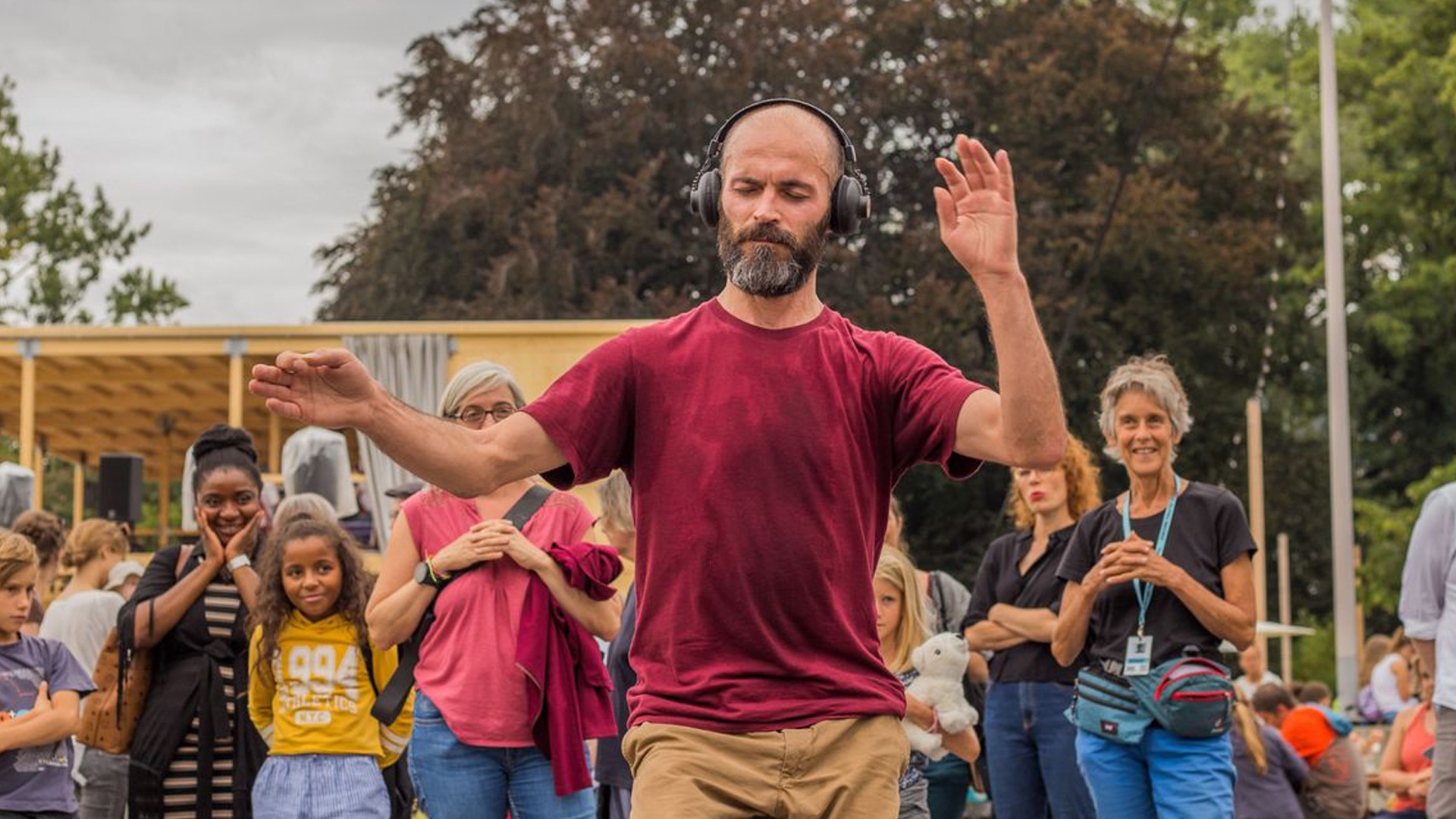Metal poles stuck out from the fabric at awkward angles. It looked like a giant spider that had been unceremoniously squashed. The landlord surveyed the marquee wreckage, shaking her head. Balancing the complimentary hot water bottle on my lap, I adjusted my hood. I had a seat in an actual pub (garden), and I was going to enjoy this glass of wine if it was the last thing I did.
It’s wonderful to be journeying on this road out of lockdown, but in our excitement, we seem to have forgotten that there’s a reason our green and pleasant land doesn’t have a big tradition of outside dining. This may well have been one of the driest springs on record (really), but it’s also one of the windiest and coldest: the Met Office has revealed that April had the lowest average minimum temperature since 1922.
Keen to keep live performances as safe as possible – and unsure what the parameters might be in the face of ever-changing policy – many festivals have opted for outside events this year
It’s not only publicans and restaurant owners who are hoping for more hospitable weather over the coming months. Keen to keep live performances as safe as possible – and unsure what the parameters might be in the face of ever-changing policy – many festivals have opted for outside events this year. Edinburgh International Festival (EIF) has announced that all its performances will take place in large outdoor marquees this summer, something that has never been done before in the event’s 74-year history. Bespoke temporary ‘pavilions’ are to be erected in several locations, including Edinburgh Park and Edinburgh University’s Old College Quad, in which EIF will host dance, opera, theatre and music. The programme for the festival, which runs from August 7 to 29, will be announced on June 2.
In Manchester, the biennial Manchester International Festival (MIF) will also be hoping for clear skies when it opens on July 1. More than 150 Greater Manchester residents will join a cast led by French choreographer Boris Charmatz, who will oversee Sea Change, a ‘human jigsaw’ of dancers filling Deansgate. MIF (July 1-18) will also host a large-scale installation in its spacious home The Factory, former site of Granada Studios. Theatre and opera director Deborah Warner’s Arcadia features luminous tents and a soundscape weaving together words by Sappho, John Clare, WB Yeats, Simon Armitage, Alice Oswald and Sabrina Mahfouz, among many others. Elsewhere, there are special appearances by Patti Smith and Arlo Parks. Many of the performances are due to be streamed (see mif.co.uk).
“All human beings are born free and equal; in dignity and rights. They are endowed with reason and conscience and should act towards one another in the spirit of community.” The lyrics to Max Richter’s Voices are intense – and with good reason: they are based on text from The Universal Declaration Of Human Rights, the definition of humanity adopted by the United Nations in 1948. This groundbreaking statement that seeks freedom for all, regardless of nationality, gender, religion or any other status, is woven into Richter’s haunting score. The narration is blended with electronics and strings; although the texture is sparse, the scale is epic. There’s a rare opportunity to hear this work performed by Richter himself: the composer is due to headline South Facing Festival (August 5-29), a new series of open-air concerts held at London’s Crystal Palace Bowl. The Max Richter Ensemble is a collaboration between Richter and Yulia Mahr, conducted by Robert Ziegler, with Grace Davidson (soprano), Mari Samuelsen (violin) and the choir Tenebrae (August 28).
The English National Opera is also set to appear at South Facing, with a semi-staged performance of Tosca, starring Natalya Romaniw, David Junghoon Kim and Roland Wood (August 27-29). Puccini’s rich scoring and a feverish plot (packed with passion and tragedy) make this an ideal first opera. There will be plenty of space to picnic – but bring a brolly.









